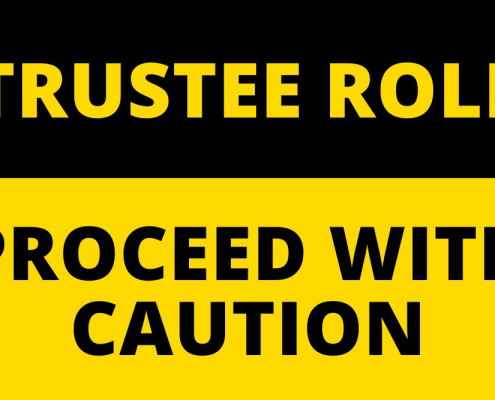Estate planning isn’t just for older people, couples with children, or individuals with a lot of financial wealth. Single people, young adults, and those with a modest income can also benefit from estate planning. There are five essential items that should be considered for every person’s estate plan, regardless of their age, marital status, or financial means.
A will or trust
Wills and trusts are the foundation of an estate plan. A will ensures that your assets are distributed according to your wishes, and a trust can protect those assets as well as limit the amount of estate taxes. The key to getting the most out of your estate plan is to have the correct legal wording. Working with an estate planning attorney is the best way to make sure that your documents are in compliance with state and federal laws thus reducing or avoiding certain estate taxes and limiting the potential for legal challenges.
Durable power of attorney
While most estate planning documents go into effect upon your death, a durable power of attorney works while you’re alive albeit incapacitated. If you are unable to manage your financial and legal matters for any reason, your appointed agent will have the ability to do so. For example, if you are unconscious due to an accident or sudden illness, your agent would be able to manage your bank accounts to make sure your bills continue to be paid. Once your condition improves and you are able to take matters back into your own hands, the power of attorney can be revoked. If your condition isn’t likely to improve, the power of attorney can remain in effect for as long as it is needed. This is particularly important for families caring for a loved one with dementia or Alzheimer’s.
Healthcare power of attorney
A healthcare power of attorney is similar to a durable power of attorney except for one key difference. As the name suggests, a healthcare power of attorney gives an individual of your choosing the power to make healthcare decisions on your behalf. For some people, this may be the same person who has been given durable power of attorney. However, you’re not required to name the same person in both documents. For example, you may want your spouse or someone close to you to make your healthcare decisions because you’ve had discussions with them about your wishes. On the other hand, the person you’ve chosen for durable power of attorney may be a trusted relative who is financially savvy.
Beneficiary designations
Your estate planning process should include some type of insurance that will provide income prior to and after your death. Long-term care insurance can cover healthcare and living expenses and life insurance will leave money behind for your loved ones. Every insurance plan includes a beneficiary designation wherein you will name the person who will receive the funds that are paid out from that insurance. You will also have the option to name a contingent beneficiary, someone who is second in line if your initial beneficiary is unable to receive the funds for any reason. Aside from insurance plans, 401k plans and other retirement savings typically include a beneficiary designation as well.
Guardianship designation
Typically, guardianship designation is included in your will. A guardianship designation allows you to name who you wish to take on the responsibility of raising your children upon your death. This should be a person or couple that you trust and that is both capable and willing to act as the guardian of your child or children. If you already have children, choosing a guardian is an absolute must. If you don’t have children yet but you plan on it, it’s still a good idea to name a guardian. This protects your children just in case something happens to you before you’ve had an opportunity to update your will. Without a guardianship designation, the decision of who your child will live with will be made by a judge.





